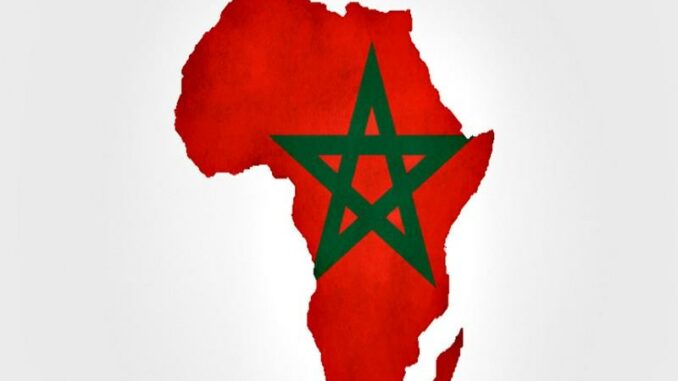
Morocco’s commitment to the stability and development in Africa was highlighted last week before the UN Security Council during an open debate on the “implementation of development policies to silence arms in Africa.”
Morocco, in line with the high guidelines of King Mohammed VI, has made the development of Africa a priority of its foreign policy, and remains firmly committed to the principle of indivisibility of security and development on the continent, said Morocco’s Permanent Representative to the UN, Omar Hilale during the debate that was chaired by the Head of State of Mozambique, Filipe Nyusi, whose country holds the rotating presidency of this UN body.
Hilale explained that conflicts in Africa have mutated from a conventional pattern to the involvement of terrorist groups and separatists, threatening the territorial integrity of states, but also international peace and security.
He stressed the imperative need to prevent these threats through increasing the chances of silencing the weapons on the continent by 2030, including through the dismantling of structures of recruitment, financing, housing and indoctrination of terrorists.
Referring to Morocco’s commitment in Africa, the ambassador said that the Kingdom has more than a thousand partnership agreements with sister African countries, as part of an active South-South cooperation.
He also highlighted the role of the Mohammed VI Institute of Imams, Morchidines and Morchidates which provides training to African preachers to counter obscurantist thinking and violent extremism.
The diplomat noted further that Morocco, which currently sits on the Peace and Security Council (PSC) of the African Union (AU), remains convinced that there can be no security without development, nor development without security.
In this regard, the Kingdom, inscribes its action around the triptych: peace, security, development to ensure the prevention and a fortiori the management of conflicts and post-conflict reconstruction, said Hilale, recalling that Morocco hosted the first political conference of the AU on the promotion of the Nexus peace, security and development, from 25 to 27 October in Tangier, which has allowed, according to him, to fructify a precursory debate on the challenges that still plague the march of Africa towards development, including food and health security challenges.
The Moroccan Ambassador also pointed out that the Kingdom has submitted its national report for the year 2022 on progress made in the implementation of the AU Roadmap to silence arms in Africa by 2030, adding that this report supports the achievements and gains of the Kingdom in the various priority areas of the Monitoring and Evaluation Mechanism of the Roadmap.
He urged the international community to redouble efforts to achieve the “realistic” goal of silencing arms in Africa by 2030, stressing the need to address and resolve the root causes of conflicts. “Our actions should address security, economic, climate, religious and cultural challenges and other dimensions specific to the needs of security and stability on the African continent,” he stressed.
In this regard, he called for combating poverty, hunger, and social exclusion, through economic integration and development of Africa, especially within the ideal framework of the African Continental Free Trade Area.
This high-level open debate, enhanced by the participation of several ministers, was an opportunity to reaffirm the need to see peace and security in Africa from a holistic angle, focusing particularly on economic and development challenges, in order to end conflicts on the continent.
